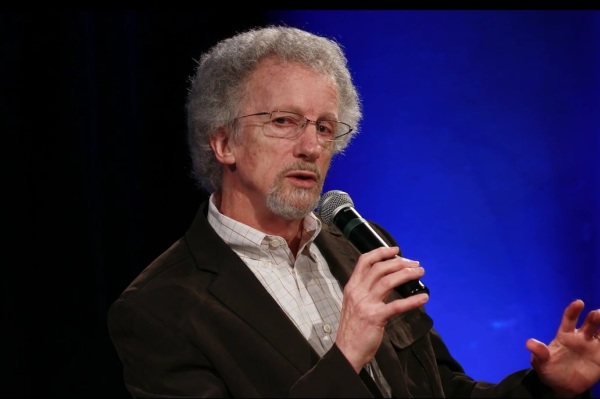Global Mission Events Highlight Shift in Lutheran Mission Strategy
Membership in the Evangelical Lutheran Church in America, like most other mainline denominations, is declining at an increasing rate. At the same time, the three fastest growing Lutheran churches in the world are in Ethiopia, Madagascar, and Tanzania. According to a top global mission director at ELCA, these facts confirm the need for the U.S. church to change its ways and learn from its Southern partners about evangelism and outreach.
“We need to learn about evangelism, and who’s going to teach us how to do this?” asked Rev. Kevin Jacobson, the director of the ELCA’s annual Global Mission Events (GME). “It’s the Madagascans and the Ethiopians. We have a lesson to learn here.”
This educational thrust is one of the main reasons for the GME, which starts today in Baltimore, Md.
Since 1983 the GME served as a venue for Lutherans in the U.S. to learn about the different mission opportunities available to them around the world. (“It’s about world mission and affairs,” says Jacobson.) It has even been used as a recruiting tool for future ELCA missionaries, and a place for current missionaries to share stories of their trips.
While all these services remain a big part of the GME, the event shifted gears recently and began opening up new doors for the North and South to connect through the window of missions.
“It’s an international festival and learning education opportunity for people, but primarily the purpose is to give our global companions an opportunity to speak to us,” explained Jacobson. “It is about what we can learn from our companions in missions.”
By “companion,” Jacobson is referring to the different Lutheran church bodies around the world that are connected with the ELCA under the larger Lutheran World Federation banner.
The LWF is an umbrella organization of 140 Lutheran denominations in 78 different countries. While those churches are not directly linked in terms of finances and administration, they work together under the common denominator as “Lutherans.”
In the past ten years, the ELCA began adopting this “accompaniment” model for global missions, where its missionaries do not serve by planting new churches but by helping already established churches minister to the local population.
“Our missionaries accompany our companion churches, and we don’t take the lead. We are not the decision makers,” explained Jacobson.
And in many cases, these missionaries are not sent to directly teach the gospel of Christ. Instead, they are doctors, English teachers, youth volunteers and service workers that help local churches minister to those in need. This is one reason why some Evangelical Lutherans have been critical about the state of the church’s global missions.
“We are not starting any new churches around the world, but we are instead giving support personnel for already established churches,” said Mark Chavez, director of the conservative Word Alone network within the ELCA.
Another concern for the state of ELCA’s global mission is the shrinking number of missionaries. In 1989, there were 471 full-time missionaries funded by the ELCA division for global missions. In 2002, that number shrunk to 204.
While that number rose to about 300 this year, Chavez is still concerned because “that figure includes some volunteers, youth, and others who are not funded by the ELCA but are supported by independent societies.”
These are all signs that point to serious problems in how the ELCA sets its priorities, according to Chavez.
“There has been a steady decline in the support for mission from churches, so there are fewer resources,” Chavez explained. “And if you look at the overall budget of the ELCA, it has invested a lot of time and money in what is not the proper mission of the church.”
Jacobson acknowledges the decrease in the number of missionaries sent by the ELCA.
However, he says, “It’s not about the numbers.”
“It’s no longer about sending, sending, sending missionaries. Our model has shifted from being a sending church to being an accompanying church,” said Jacobson. “And this has been more successful with outreach because the primary tools for evangelism are best known by people in their own country, in their own context.”
According to mission agencies such as Gospel For Asia, which trains and sends native missionaries into unreached areas of Asia, native preachers have an "enormous advantage" over their western counterparts.
In places such as Asia, where over 85 percent of countries do not allow western missionaries to come and freely preach the Gospel and plant churches, native missionaries have few or no cultural barriers to overcome.
“In the eyes of the people, native missionaries do not represent a foreign country or a strange religion,” according to GFA. “They already know the language or can easily learn a local dialect.”
Furthermore, contrary to criticisms, supporters of the accompaniment-style of missions believe these programs effectively spread the gospel of Christ.
“Everything we do is about the proclamation of the gospel," said Jacobson. "So when we send a teacher who teaches English in the classroom, the purpose is to give people the opportunity to hear the gospel of Jesus Christ.
“When we send a doctor, the purpose is giving people the opportunity to hear the message. In all we do, it’s about the proclamation of the gospel.”
Currently there are ELCA missionaries in 50 countries around the world.
Some of those missionaries will be in Baltimore today, giving presentations about their work. But the highlight of the conference will be the local leaders from Rwanda, Sudan, Palestine, Nicaragua, Germany and Hong Kong.
These global companions will teach the 1,000-plus Global Mission Events attendants about the different strategies they are using to run their respective churches.
This is why Jacobson says he is “absolutely thrilled.” After all, he explains, “the three fastest growing Lutheran churches are in the Southern Hemisphere, and we have a whole lot to learn about evangelism from them."
“That’s the purpose for the GME. We have a lesson to learn from them," he said.
The Baltimore GME held from Aug. 25-28 at the Baltimore Convention Center and the Wyndham Inner Harbor Hotel. For more information about the event or to register, visit: www.elca.org/gme.





















